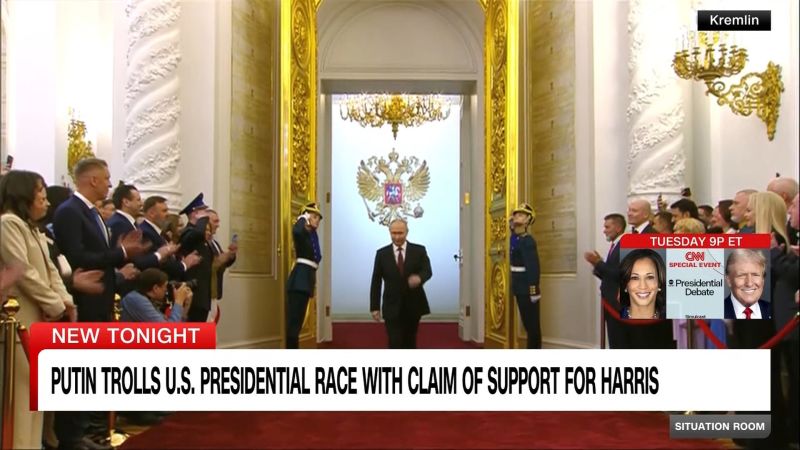In a surprising turn of events, Russian President Vladimir Putin has weighed in on the U.S. presidential race by stating that he would prefer Kamala Harris as the next president. This statement comes just a day after the U.S. government revealed that Russians had secretly paid U.S. content creators and created fake news sites to influence the election. Putin’s comments have sparked a new wave of speculation and controversy surrounding foreign interference in the election process.
Putin’s endorsement of Harris is seen as an attempt to sow further discord and confusion within the already contentious presidential race. By openly expressing a preference for one candidate over another, Putin is adding fuel to the fire of U.S.-Russian relations, which have been strained in recent years due to allegations of election interference and other malicious activities. This latest move is likely to further polarize American voters and create more uncertainty about the integrity of the election.
The U.S. government’s revelation about Russian interference in the election has raised concerns about the security of the electoral process and the potential impact on the outcome. The fact that Russians were able to secretly pay content creators and create fake news sites to spread disinformation highlights the vulnerabilities of the American electoral system. This revelation has also reignited calls for greater cybersecurity measures to protect against foreign interference in future elections.
Putin’s comments about preferring Harris as president are not only seen as an attempt to undermine the democratic process in the U.S., but also as a strategic move to manipulate the election outcome in favor of a candidate that he believes will be more favorable to Russian interests. By openly aligning himself with Harris, Putin is sending a message to the American public that Russia has a stake in the outcome of the election and will continue to exert influence through various means.
The timing of Putin’s endorsement of Harris is also significant, coming just weeks before the presidential election. This move could potentially sway some voters who are on the fence about which candidate to support, adding another layer of complexity to an already turbulent political landscape. With tensions running high between the U.S. and Russia, Putin’s comments are likely to further strain diplomatic relations and create more uncertainty about the future of the two countries’ interactions.
Overall, Putin’s trolling of the U.S. presidential race by expressing a preference for Kamala Harris as president is a concerning development that highlights the ongoing challenges of foreign interference in American elections. The revelation of Russian efforts to influence the election through secret payments and fake news sites only adds to the uncertainty surrounding the electoral process. As the election draws near, it is becoming increasingly clear that safeguarding the integrity of the democratic process against foreign interference is a top priority for U.S. officials and voters alike.













